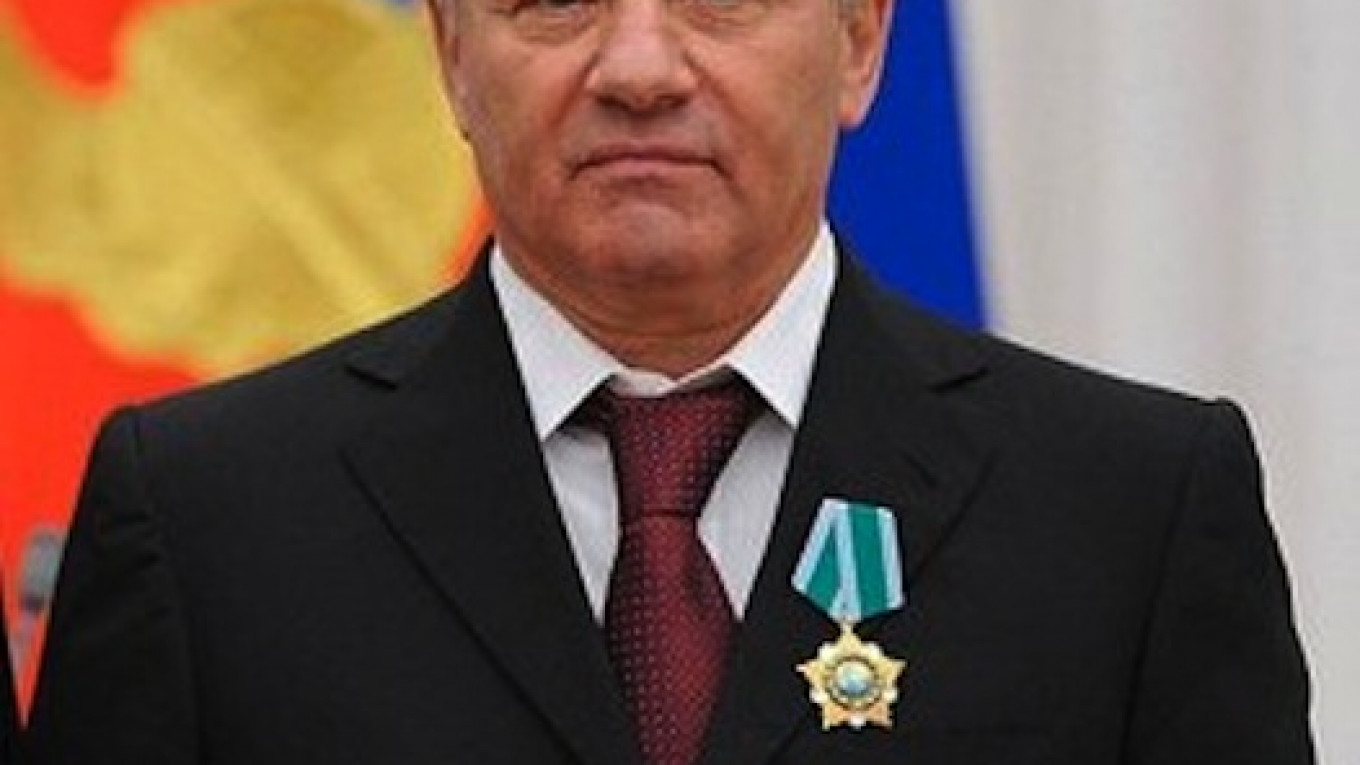Italy has frozen nearly $40 million in assets held by Russian billionaire Arkady Rotenberg, who was branded a member of President Vladimir Putin's inner circle and slapped with U.S. and EU sanctions earlier this year, a news report said.
The freeze affected assets including a luxury hotel in the center of Rome, bank accounts, company shares and real estate that Rotenberg owns in Sardinia and the Lazio region of central Italy, Italian newspaper Corriere della Sera reported Tuesday. Their combined worth is some 30 million euros ($39 million), the paper said.
Rotenberg on Tuesday criticized the freeze as exceeding the requirements of the EU sanctions.
"It's surprising that in this situation we are talking about real estate, which does not fall under the sanctions," he told news agency Interfax.
"Only accounts and assets are included in the sanctions, of which I have none in Italy …this once again demonstrates the entire illegitimacy and absurdity of this situation," Rotenberg said.
Russian oligarchs own huge swathes of property in Europe and the U.S., and it is unclear whether the Italian authorities' actions threaten other holdings.
The assets were frozen by Italy's financial law enforcement agency on Monday morning, the report said.
Rotenberg boasts a personal fortune of some $3.4 billion, according to Forbes. Both Arkady and his brother Boris Rotenberg are known to be close friends and judo sparring partners of Russian President Putin, a status widely believed to have earned them the major construction contracts that propelled the brothers to wealth and privilege.
The United States sanctioned both Rotenbergs in March following Russia's annexation of Crimea from Ukraine, hitting both personal assets and companies owned by the brothers. By going after close associates of Putin, the U.S. hoped to pressure the Kremlin into changing course in Ukraine.
The European Union blacklisted Arkady Rotenberg in late July as Russia upped its support for separatist rebels in eastern Ukraine, prompting the West to in turn beef up its sanctions against Moscow.
A Message from The Moscow Times:
Dear readers,
We are facing unprecedented challenges. Russia's Prosecutor General's Office has designated The Moscow Times as an "undesirable" organization, criminalizing our work and putting our staff at risk of prosecution. This follows our earlier unjust labeling as a "foreign agent."
These actions are direct attempts to silence independent journalism in Russia. The authorities claim our work "discredits the decisions of the Russian leadership." We see things differently: we strive to provide accurate, unbiased reporting on Russia.
We, the journalists of The Moscow Times, refuse to be silenced. But to continue our work, we need your help.
Your support, no matter how small, makes a world of difference. If you can, please support us monthly starting from just $2. It's quick to set up, and every contribution makes a significant impact.
By supporting The Moscow Times, you're defending open, independent journalism in the face of repression. Thank you for standing with us.
Remind me later.






